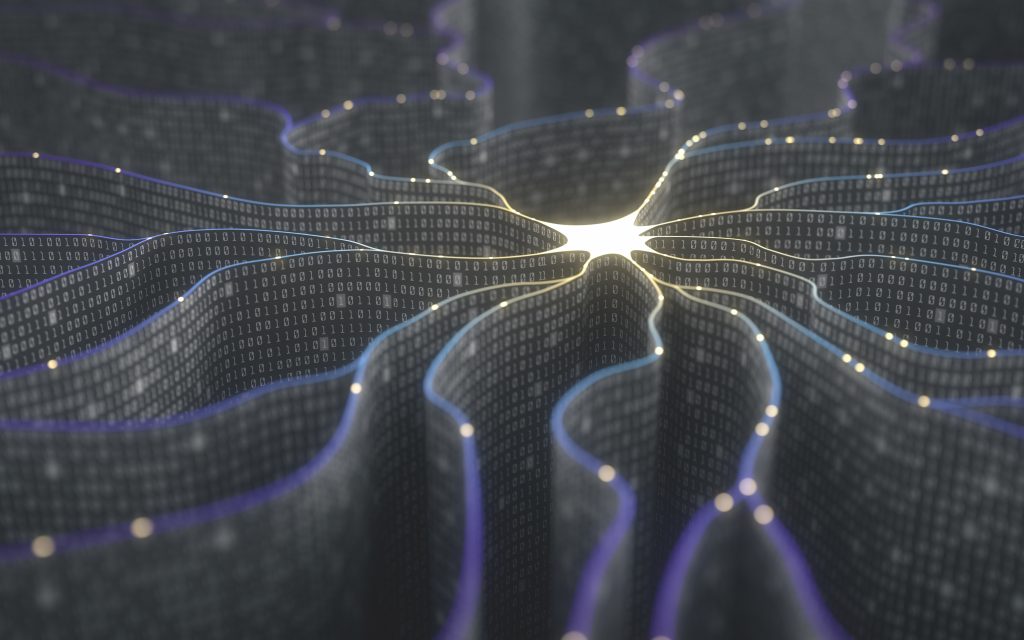At the beginning of 2016, the world’s most sophisticated artificial intelligence (AI) beat World Champion Lee Sedol at a game called ‘Go’ – a chess-like board game with more move combinations than there are atoms in the universe. Before this defeat, Go had been considered too complicated for even the most complex computers to beat the top humans.
copyright by www.drax.com
 It was a landmark moment in the development of ever-more sophisticated AI technology. But the future of AI holds more than simply board game victories. It is rapidly finding its way into all aspects of modern life, prompting the promise of a ‘Fourth Industrial Revolution’. One of the areas AI has huge potential is in our energy system. And this could have implications for generators, consumers and the environment.
It was a landmark moment in the development of ever-more sophisticated AI technology. But the future of AI holds more than simply board game victories. It is rapidly finding its way into all aspects of modern life, prompting the promise of a ‘Fourth Industrial Revolution’. One of the areas AI has huge potential is in our energy system. And this could have implications for generators, consumers and the environment.
The UK National Grid gets wise
Earlier this year the UK’s National Grid revealed it’s making headway in integrating AI technology into Britain’s electricity system. It announced a deal with Google-owned AI company (and creator of the Go Champion-beating system) DeepMind which is set to improve the power network’s transmission efficiency by as much as 10% . One of the National Grid’s most important tasks is maintaining the frequency of Britain’s power networks to within ±1% of 50Hz . Too high a frequency and electrical equipment gets damaged; too low a frequency and you get blackouts. Managing this relies on ensuring electricity supply and demand are carefully balanced. But this is made increasingly difficult with the growing number of intermittent renewables – such as wind and solar – on the grid.
Process data at lightning speed
The ability to process massive amounts of information from a wide variety of data points (from weather forecasts to internet searches to TV listings) and create predictive models means AI can pre-empt surges in demand or instances of oversupply. In short, it can predict when the country will need more power and when it will need less. More than this, it can respond to these fluctuations in sustainable and low-carbon ways. For example, it can automate demand side response, where energy users scale back their usage at peak times for a reward. Similarly, it can automate the purchasing of power from battery systems storing renewable energy, such as those connected to domestic solar arrays. These solutions, which would see AI help to manage supply and demand imbalances, would ease some grid management pressures, while large thermal generators controlled by human engineers back up such automation with their continuing focus on maintaining grid stability through ancillary services. […]
read more – copyright by www.drax.com


At the beginning of 2016, the world’s most sophisticated artificial intelligence (AI) beat World Champion Lee Sedol at a game called ‘Go’ – a chess-like board game with more move combinations than there are atoms in the universe. Before this defeat, Go had been considered too complicated for even the most complex computers to beat the top humans.
copyright by www.drax.com
The UK National Grid gets wise
Earlier this year the UK’s National Grid revealed it’s making headway in integrating AI technology into Britain’s electricity system. It announced a deal with Google-owned AI company (and creator of the Go Champion-beating system) DeepMind which is set to improve the power network’s transmission efficiency by as much as 10% . One of the National Grid’s most important tasks is maintaining the frequency of Britain’s power networks to within ±1% of 50Hz . Too high a frequency and electrical equipment gets damaged; too low a frequency and you get blackouts. Managing this relies on ensuring electricity supply and demand are carefully balanced. But this is made increasingly difficult with the growing number of intermittent renewables – such as wind and solar – on the grid.
Process data at lightning speed
The ability to process massive amounts of information from a wide variety of data points (from weather forecasts to internet searches to TV listings) and create predictive models means AI can pre-empt surges in demand or instances of oversupply. In short, it can predict when the country will need more power and when it will need less. More than this, it can respond to these fluctuations in sustainable and low-carbon ways. For example, it can automate demand side response, where energy users scale back their usage at peak times for a reward. Similarly, it can automate the purchasing of power from battery systems storing renewable energy, such as those connected to domestic solar arrays. These solutions, which would see AI help to manage supply and demand imbalances, would ease some grid management pressures, while large thermal generators controlled by human engineers back up such automation with their continuing focus on maintaining grid stability through ancillary services. […]
read more – copyright by www.drax.com
Share this: